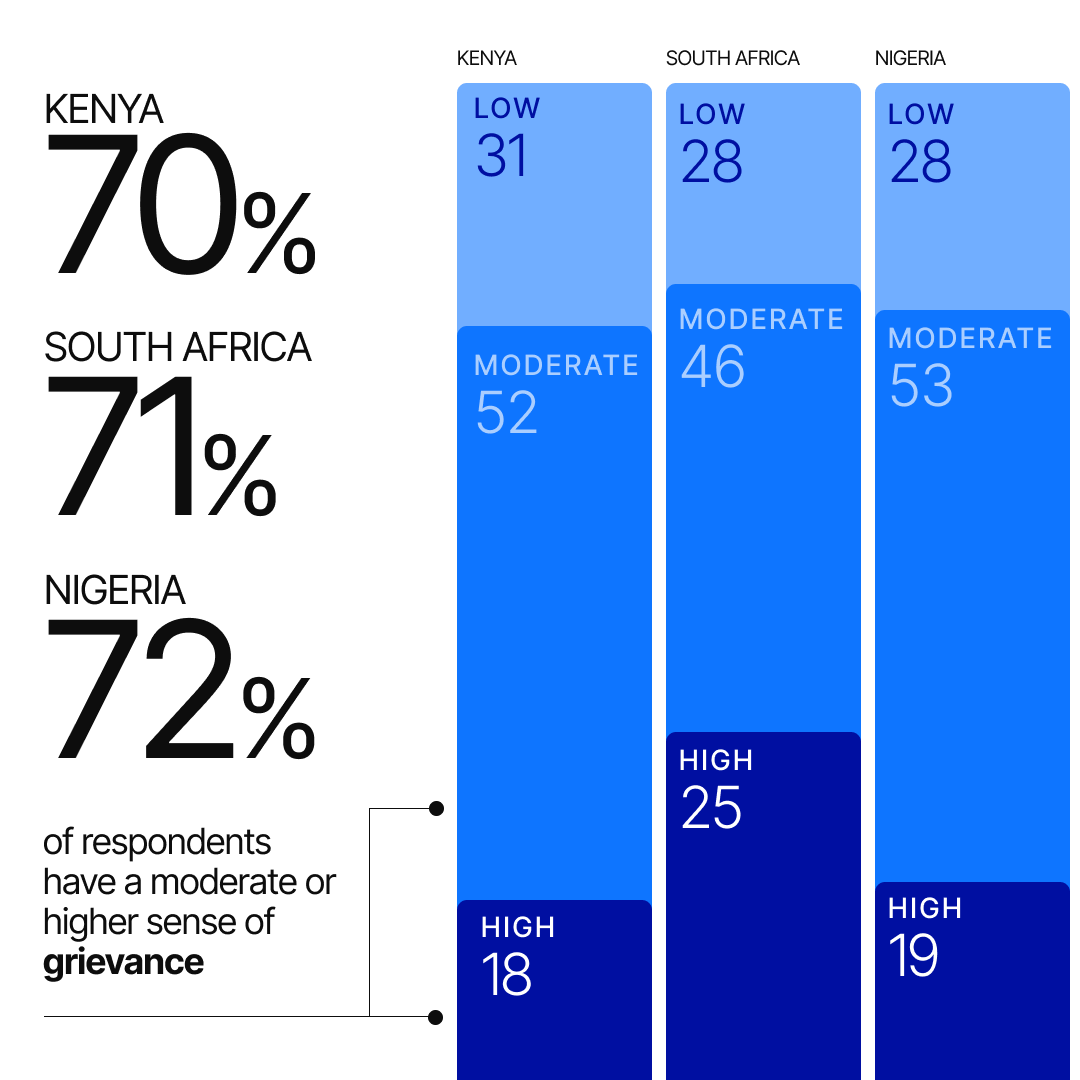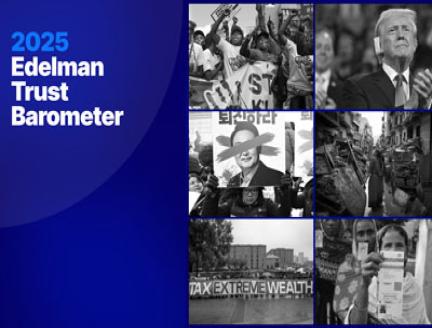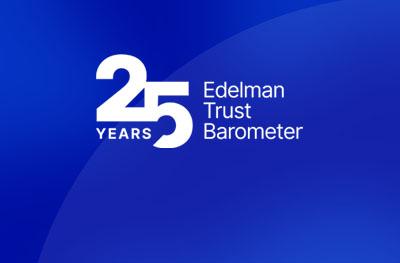- Africa (EN)
- Australia (EN)
- Belgium (EN)
- Brasil (PT)
- Canada (EN)
- Canada (FR)
- China (CN)
- France (FR)
- Germany (DE)
- Germany (EN)
- Global (EN)
- Hong Kong (EN)
- India (EN)
- Indonesia (EN)
- Ireland (EN)
- Italy (IT)
- Italy (EN)
- Japan (JP)
- Korea (KR)
- Latin America (ES)
- Malaysia (EN)
- Middle East (EN)
- Netherlands (EN)
- Spain (ES)
- UK (EN)
- Africa (EN)
- Australia (EN)
- Belgium (EN)
- Brasil (PT)
- Canada (EN)
- Canada (FR)
- China (CN)
- France (FR)
- Germany (DE)
- Germany (EN)
- Global (EN)
- Hong Kong (EN)
- India (EN)
- Indonesia (EN)
- Ireland (EN)
- Italy (IT)
- Italy (EN)
- Japan (JP)
- Korea (KR)
- Latin America (ES)
- Malaysia (EN)
- Middle East (EN)
- Netherlands (EN)
- Spain (ES)
- UK (EN)
Trust in Africa is shifting
The 2025 Edelman Trust Barometer reports Africa reflects a nuanced trust landscape.
In Kenya, while NGOs (76%), business (72%), and media (66%) remain trusted institutions, trust in government remains distrusted at 38%. This mirrors a worldwide pattern where confidence in traditional institutions is under pressure, driven by concerns over leadership transparency, economic inequality, and misinformation. Despite this uncertainty, Kenya ranks among the top six most optimistic countries globally, with 53% believing the next generation will be better off compared to today.
Meanwhile, for South Africa, trust in government has seen a cautious shift upward, buckling global trends. Out of 13 surveyed countries that changes in government leadership in the past year, South Africa is one of only two to see a significant, positive shift in trust index. However, fears of job insecurity among employees are still prevalent.
For Nigeria, the 2025 Edelman Trust Barometer delivers a stark yet compelling message: the trust index in Nigeria– average percent trust across business, government, media, and NGOs – has increased to 65, up 4 points from the previous year. In an era of scepticism, this growth is a testament to the resilience of institutions. But this is not the time for complacency.
.
Majority hold grievances against government, business, and the rich
South Africa’s rise in overall trust across the four main institutions is tempered by concerning findings around moderate to high sense of grievance against Business, Government, and the Rich. 71% of South Africans (10pts above the global average) hold a moderate or higher sense of grievance. This is defined by a belief that business and government serve narrow interests and harms them, and ultimately the wealthy benefit while regular people struggle.
Seventy percent of Kenyans have a moderate or higher sense of grievance, believing that government and business serve narrow interests and harms them, and ultimately that the wealthy benefit while regular people struggle.
Seventy-two percent of Nigerians have a moderate or higher sense of grievance, believing that government and business serve narrow interests and harms them, and ultimately that the wealthy benefit while regular people struggle.

Explore the findings


Restoring trust and building optimism
1. Grievances must be addressedThe institutional failures of the last 25 years have produced grievances around the world, stifling growth and innovation in turn. To lead through this crisis, understand the economic realities of your stakeholders, champion shared interests, and create opportunities for optimism. |
2. Business has a license to actThose with a higher sense of grievance are more likely to believe that business is not doing enough to address societal issues. To navigate these expectations, understand where you have obligations, act on behalf of your stakeholders, and advocate for your organization. |
3. Business can’t act aloneBusiness, government, media, and NGOs must work together to address the root causes of grievance and enable trust, growth, and prosperity. Invest in local communities, quality information, and job skills. Deliver results that benefit everyone fairly. |
4. With trust, optimism eclipses grievanceWhen institutions can’t be trusted to do what is right, grievances fester and outlooks darken. To dissipate grievance and increase optimism, prioritize and rebuild trust across your organization and local communities. |
Explore the findings
.
Top Findings
01
NGOs retain top ranking
⟲
01
NGOs continue to be the most trusted institution in Kenya, with 76% trust, followed by business at 72% and media at 6%. This indicates a consistent preference for organizations perceived as serving the public good.
02
Government trust on the decline
⟲
02
Trust in government stands at 38%, marking a 4pt decline from the previous year. A decline in government trust is observed across all income brackets, reinforcing a growing skepticism towards government as an institution.
03
High distrust in government leaders
⟲
03
A staggering 80% of Kenyans worry that government leaders intentionally mislead the public by making false claims or exaggerated statements, pointing to deep-seated concerns about transparency and accountability.
.
Insights
Methodology: The 2025 Edelman Trust Barometer is the firm’s 25th annual Trust survey. The research was produced by the Edelman Trust Institute and consists of 30-minute online interviews conducted between October 25 and November 16, 2024. Learn more >
33,000 | 28 | ±1,150 |








